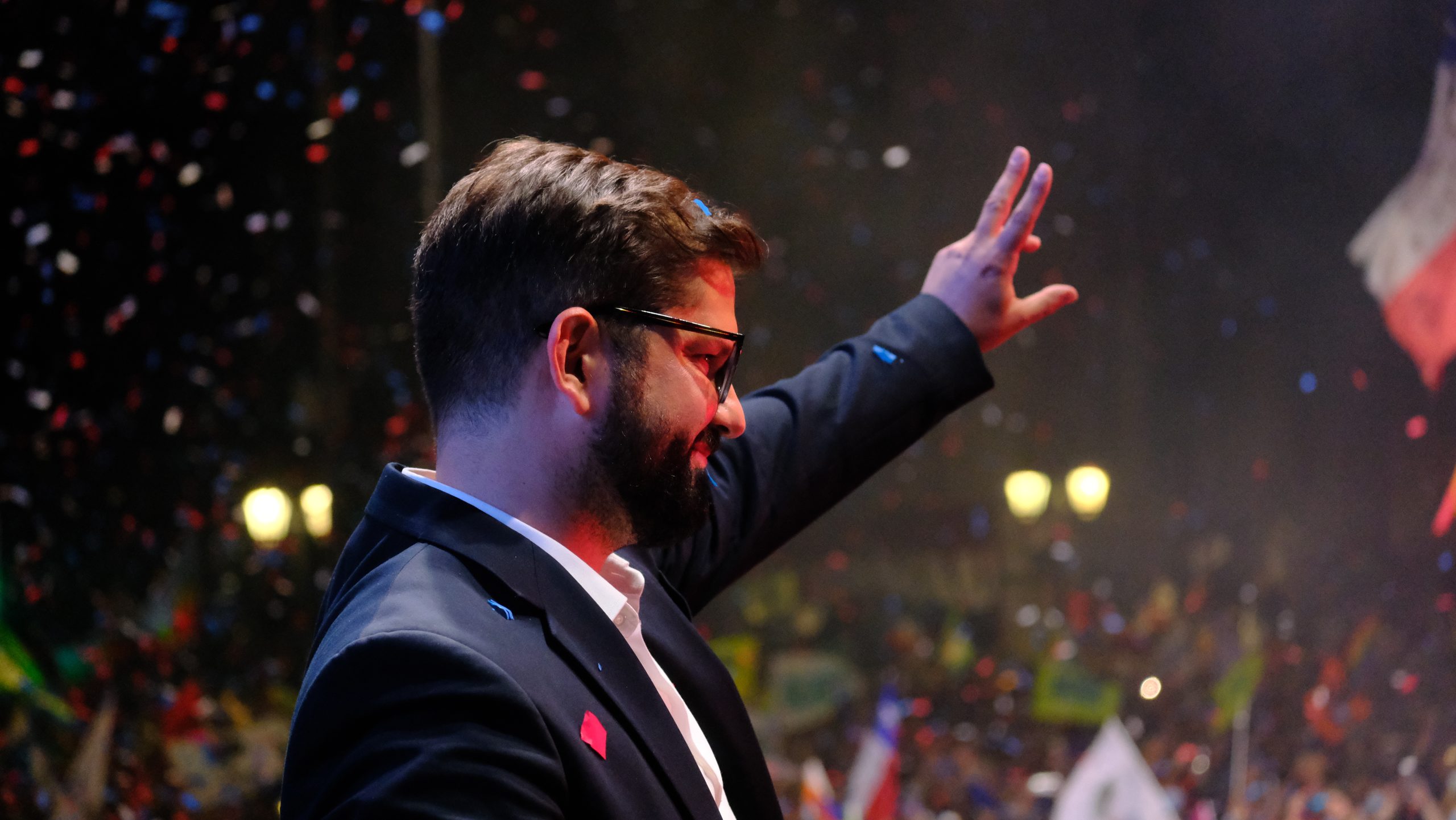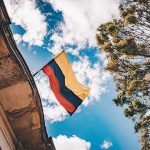Gabriel Boric, a 36-year-old leftist politician, will be the new president of Chile from March 11, the date on which he will be inaugurated. His electoral victory represents a transcendental change in the politics of that South American country, which can only be explained as the result of a historic struggle initiated by the Chilean youth in 2019, one that has not been consolidated until now.
Who is Gabriel Boric?
Boric was born in 1986 in Punta Arenas (Magallanes region), in the extreme south of Chile. He comes from a wealthy middle-class family and is the son of an oil worker.
His time in politics began early as a university leader. During this phase, he gained notoriety after the student revolts of 2011, when university groups protested through the streets in Santiago rejecting the Chilean educational system, which is financed almost entirely by the private sector. As a result, Boric was elected president of the University of Chile Student Federation.
That popularity was later translated into a higher position. In the 2013 parliamentary elections, Boric ran for deputy as an independent candidate, representing the Magallanes region. He won the election with 26.18% of the votes, something surprising since he did not have a political party to support him. He had a lot of visibility in the media and social networks for representing a new generation of citizens who did not agree with the “old politics and politicians”. There is a popular video in which Boric appears in the parliament without a tie and in a casual jacket. The rest of the deputies, all of legal age and with extensive political experience, attacked and criticized him for his clothing. Boric responded by saying that “the Chilean Parliament does not represent social diversity, but an elite from Santiago, macho and, obviously, upper class.”
In 2017, Boric founded his political front: “Frente Amplio”, which maintained the left ideals but separated from traditional political fronts such as the Communist Party.
Although Boric worked as deputy since 2014, but in 2019 he went back to the streets in one of the most significant protests in Chilean history since its return to democracy in 1990.
An unequal paradise
Chile has been considered one of the most stable countries in Latin America. However, in 2019 that oasis in the middle of the desert vanished like a mirage. Protests like this have not been seen since those experienced during Augusto Pinochet’s dictatorship.
The crisis began when on October 6, 2019, the government of Sebastián Piñera raised the price of the subway ticket by 30 Chilean pesos, reaching up to 830 (approximately €1.03). Students protested by evading and not paying for the subway ticket but the situation intensified with the burning of subway stations, looting of supermarkets and attacks on public facilities in Santiago, the Chilean capital. Sebastián Piñera responded by summoning the Armed Forces to the streets and ordering a curfew in the cities where violence had risen. A total of 30 deaths and thousands of injuries were reported.
On October 19, 2019, Piñera suspended the price increase on the transportation tickets. However, the protests continued and those who appeared on the streets were not only students but other sections of the society that were not satisfied with their country’s economic model: “it’s not 30 pesos, it’s 30 years.”
For Chileans, their country was extremely unequal. To give an example, people criticized the fact that 50% of Chileans obtained only 2.1% of the country’s incomes; that half of the workers receive a salary close to the national minimum wage (€373 during 2019); that only 11% of low-income students graduate or that 80% of retired workers receive a pension below the national minimum.
The solution to the problem lay in the constitution itself, so on November 15, 2019, a treaty was signed between the different political fronts in which they promised to call a plebiscite so that the citizens could say if they agreed to have a new constitution and who would be the people who drafted that document. Gabriel Boric, who was part of the entire student protest has also signed the treaty.
On October 25, 2020, the plebiscite was held, giving an overwhelming result. 78% of voters opted to create a new Constitution that, in addition, would be drafted by a Citizen Convention elected by popular vote, a fact that had not occurred since 1833.
Between May 15 and 16, 2021, the citizens who will draft the constitution were elected. There were 1,373 candidates among whom there were actors, writers, teachers, lawyers, and politicians. A system was established so that at least 45% of the 155 seats are held by women. In addition, 17 seats were reserved for indigenous representatives (Mapuche, Aymara, Quechua, and Diaguita). Less than a third of the elected citizens are part of the right-wing coalition proposed by Piñera.
In the middle of this year, Chileans must vote again to approve or reject the new constitution.
Time for elections
Boric was the candidate of the left-wing political coalition “I Approve Dignity”. Surprisingly, the far-right candidate, José Antonio Kast, won the election (27.91%). He could not get the presidential seat with that percentage (According to Chilean electoral law, to win the election in the first round, a candidate must obtain at least 50% of the valid votes), so there was a ballot with the second most voted candidate, who was Gabriel Boric with 25.83% of the votes.
The electoral results showed that a large part of the citizens still believe in traditional politicians and that Chile entered into an extremely polarized environment due to the defeat of all the centrist political parties and candidates. It seems that extreme polarization is becoming a constant in Latin America with countries like Brazil, Bolivia, Peru, Venezuela, and now Chile as examples.
Everything was decided in the second round. Boric became the future president of Chile by winning the runoff election with 55.87% of the votes.
For analysts, Boric’s victory was the result of increased electoral participation. In the first round, only 47.3% of the citizens voted, while in the second that percentage reached 55.5%. That increase between the two elections had never been seen before in Chile since voting is not mandatory. Those extra votes were important to Boric.
In addition, for the second-round campaign, Boric moderated his controversial proposals such as tax reform (one of his star promises), managing to obtain the vote of people without extreme ideologies.
The future
Gabriel Boric will become the youngest president in the history of Chile. He already is the first presidential candidate to win the ballot after losing in the first round and is also the first not to belong to a traditional political party since the return to democracy in 1990. In addition, he will have the opportunity to work with a new congress and constitution (if approved).
However, there are also many challenges ahead for the new Chilean president. The most important is to maintain citizen confidence in all those deep changes that he wants to implement in Chile.
According to the latest polls, only 50% of the citizens trust in the Convention that is currently drafting the new constitution. To these data, we must add the controversies such as the presentation of a proposal that wants to destroy the three powers of the State, the possible elimination of the word “republic” in the document, the big accusations of racism, the increase in money assigned to each of the members of the Convention and the resignations of some members such as the director of Communications and the Executive Secretary.
Boric will also have to govern without a majority in congress, forcing him to negotiate with the other political forces while at the same time he has to be able to maintain the support of the electoral coalition to which he belongs.
This polarized and distrustful environment is not the most fertile ground for complying with his proposals, among which is the increase in taxes on rich people and large companies; transform pension, health, and education systems; decrease in the working day and increase in the minimum wage; the forgiveness of educational debts and access to contraception in primary health care.
His age, proposals and the current political situation make Boric already an important president in Chilean history. However, only time can tell how his country and the world will remember his administration.

Guery Marañón
Guery Marañón is a political communications student and the current Head of PR at Utrikespolitiska Föreningen Göteborg.


